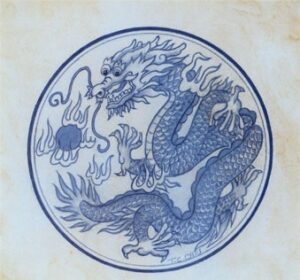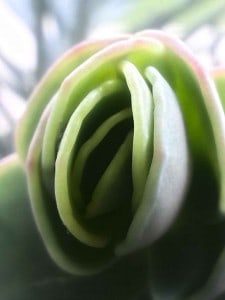Frequently Asked Questions

Are your herbs safe?
Yes, they are made by the biggest suppliers in China under impeccable conditions. Herbs are a multi-million industry for our supplier and there is no cutting corners nor hanky-panky that would jeopardize that. Most of the problems with Chinese herbs have come from small suppliers trying to make their way into the market with counterfeits.
Who are you?
My name is Doug Eisenstark and I’ve been in practice since 1996. Al Stone started the company 10 years ago and gave the company to me 6 years ago before he passed away. We are not Amazon but we are approaching half a million dollars in sales since starting up. We are kind of an old school type of operation but safe and caring etc…
Are your herbs organic?
This is a difficult question because there is no trusted organic certification in China. 90% of Chinese Herbs are collected in the wild from fields or forests and therefore there are no standards (nor need) for organic production. Chinese herbs are for the most part resistant to bugs so there is little use for pesticides and since they are wild they aren’t artificially fertilized. But its not a perfect organic system so all of our herbs are thoroughly tested before they go into production for processing.
How long does it take to get the herbs?
Orders can be processed that day but always within 48 hours of receiving the orders. Orders placed on the weekends or holidays will be processed on the following business day. We then mix groups of herbs into one bottle. We want to take the best care with your herbs and are constantly trying to stream-line our overall service. The exception we might have is when you order many bottles at a time and we have to order more herbs to fill the order. That might take us a few more days.
We almost alway ship USPS Priority because it really is the quickest way to go.
Do you sell herbs or formulas and what is the difference?
Formulas are a group of herbs after they have been put together. Often times we say herbs when we mean formulas. Its just a language thing.
Which is stronger? Capsules or Granules?
I am so glad you asked. We have a page here just for that very question.
Can these herbs be used with animals?
Yes, although we aren’t vets, apparently many of our customers do give them to their dogs and cats. And from the feedback we get, they (owners and pets) have been happy with the results.
Can you tell me when the herbs reach their expiration date?
No, not really. I buy some custom granules that list a 3 year expiry date but I think its pretty arbitrary. We try to keep our stock at Eagleherbs fresh and try to throw anything out over a year out. But the main problem is that once a bottle is opened it can clump up soak up moisture and then get hard. I’ve found things in my closet 10 years old that got this way and had to throw them away. Still I don’t think they go “bad” as much as unusable.
Eric Brand, at Legendary Herbs where we buy our herbs says they remain effective for many more years. I am going to quote from something he wrote: “Testing results on the long-term stability of granules in sealed containers indicate that granules have a very long shelf life. Minimal changes have been noted in hundreds of products even after eight to nine years. While many manufacturers use a three-year expiration date on the U.S. market, five-year expiration dates are also common for the exact same products in other markets (such as the E.U.). Expiration dates are rarely based on actual evidence of degradation, and in general the expiration dates used for granules are shorter than necessary to reduce liability and encourage product turnover. From the perspective of efficacy and safety, most granules in sealed bottles can probably last for many years beyond their stated expiration dates.”
Does your company keep bears in cages?
No. Actually this isn’t a frequently asked question, I just want to emphasize that we don’t carry products from rare or endangered species. All our herbs are CITES compliant.
What is the dosage?
Its hard to say because I can’t generalize about your condition, age, weight etc… But generally the top end of dosage is 4 capsules 3 times a day or 2 teaspoons 3 times a day (granules). That being said, I like to have patients start off with a very small amount at the beginning and work your way up to a comfortable dosage. The trick is to take them, if they are making you feel uncomfortable then back off the dosage. Any time you start a new formula it may “wake up” the system and so at the beginning I like patients to take them well before bedtime.
Is it better to get these prescribed by a doctor in person?
Yes, it is. But Eagleherbs was started because we recognized that many people do not have access to a competent practitioner. Eagleherbs has numerous opportunities for consultation on our pages and through paid phone interviews. We also strongly believe that people should be allowed the opportunity to choose for themselves given some guidelines.
Why are you always so interested in how my body feels when I just have problems with my emotions?In Chinese medicine we don’t have a difference between mind and body (so-called body-mind split) in the same way that we usually have thought of it in Western traditions. So when we talk about balancing the body and mind or integrating the body and mind, in Chinese philosophy and medicine they have never been separated! Here is a fascinating academic article about this. -> http://www.ncbi.nlm.nih.gov/pmc/articles/PMC4253951/
Is Chinese Medicine a religious thing?
No, the religion has been filtered out over the years in most practices. We do have basic precepts like Yin and Yang but these are more scientific philosophies like gravity and atoms are in the west.
Do you have herbs that will help me with this ______ disease? Why don’t you just list the diseases the herbs are for?
There are two issues here. The first is that Chinese Medicine diseases are different from Western diseases. And our “diseases” often have very different approaches to them. So we may treat something that is very much like arthritis (in Western medicine terms) but have 6 very different approaches. Like diseases in Western medicine which have different drugs depending on the presentation.
The second issue is that of “disease-claims” that the FDA doesn’t allow us to do. This was laid out in the Dietary Safety and Education Act (DSEA) by the FDA. Basically what comes down to is that supplement sellers can make “structure-function” claims- our stuff helps aspects of your well-being but we can’t legally say or imply that we cure much. For example, we can’t label a formula HepCcure because even without saying so the name implies it. We try our best to keep to these regulations.
It’s pretty interesting stuff actually and you may find all kinds of hints about it on Eagleherbs. Al wrote a number of great articles (mainly for other practitioners) on this very subject as well as being a part of high level committees in the herbs community. You can look at the articles here: DSEA tutorials
Should I believe everything I read on the internet?
No. (Abraham Lincoln said that.)
The big one: “What is Qi?”
hahahaha! Now you are going to get me in trouble! Qi is the basic concept of Chinese philosophy. Read about it here.
Fang, Pian, Tang, Wan? Whats the difference? Again: read all about it here.
Do you give discounts to students or practitioners?
No, although our suppliers have been extremely kind to us, they don’t sell to us for a substantial discount beyond what many students and practitioners can get for themselves. By giving a student or practitioner price we simply would be giving away our labor.
Can I call with a question?
Yes, but I really prefer emails when possible. With a phone call it may take some time to get back to you. And then there is the “phone-tag” thing.
Can I order over the phone?
(see above) Yes, kind of, maybe, would rather not. Phone orders takes us more time to fill. If you want to call about your health problem(s) I don’t mind talking at length to you but I probably will refer you to the web-site to order if its possible for you to do so. We set up the ordering process as a computerized company so that from the time we get your order to when we send it out, all the production details such as payment and shipping are lined up to get it out to you quickly. Phone orders are essentially “hand made” at every stage.





 The sheep year may be gentler and calmer. Wood however, does like to grow and although it can bend, once it starts moving is very hard to stop, like bamboo pushing up the eaves of a house.
The sheep year may be gentler and calmer. Wood however, does like to grow and although it can bend, once it starts moving is very hard to stop, like bamboo pushing up the eaves of a house. 




 The balanced body type or “constitution” includes a somewhat even number of delicate and hearty attributes. [
The balanced body type or “constitution” includes a somewhat even number of delicate and hearty attributes. [